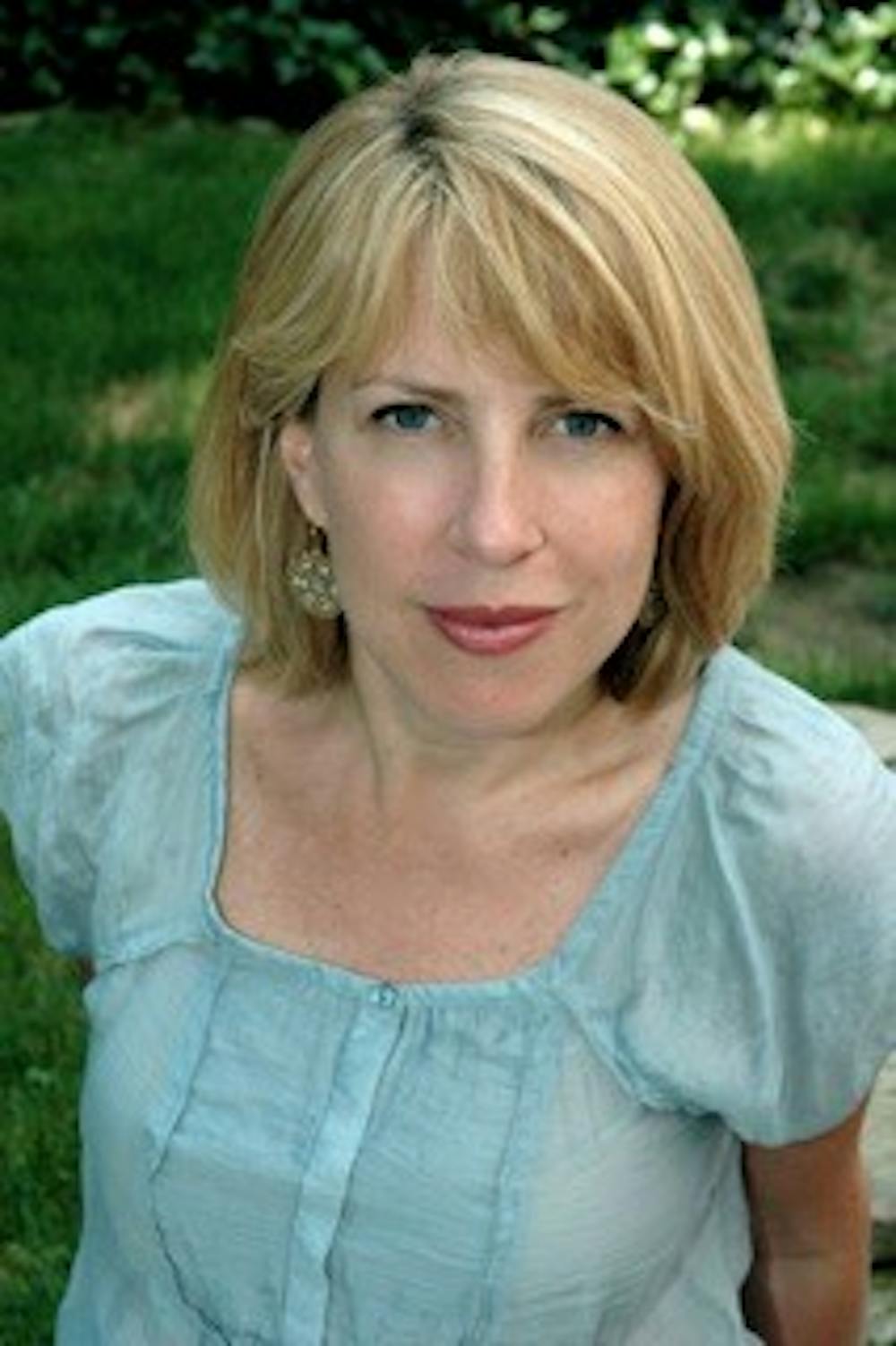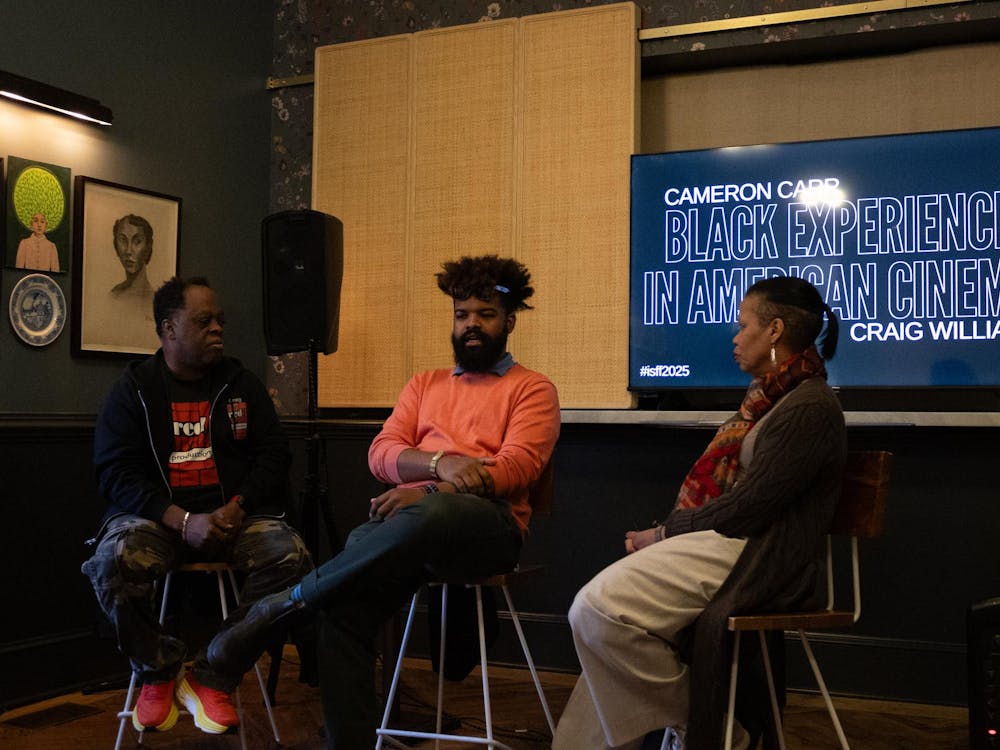As one of the most recognizable paintings in American history, “Christina’s World” by Andrew Wyeth leaves much up to interpretation. Who is the girl in the pale pink dress sprawled in a vast field, and why is she gazing longingly toward a barn in the distance?
Author Christina Baker Kline addresses these questions and more in her latest novel, “A Piece of this World,” in which the real relationship between Wyeth and his frequent muse Christina Olson is dramatized. The novel is Kline’s follow up to her acclaimed “Orphan Train,” which spent over two years on the New York Times bestseller list — including five weeks at number one.
In addition to her six novels, Kline has also written and edited several works of nonfiction, short stories and essays. Though her stunning body of work is diverse and distinct, Kline often illuminates the resiliency of the female spirit, the trials and tribulations of childhood and the necessity of inspiration.
The Cavalier Daily spoke to Kline in advance of her visit as honored guest during the Virginia Festival of the Book March 23, part of her national tour.
The Cavalier Daily: Many of your works illuminate moments in history — specifically, “Orphan Train” and “A Piece of the World” take place in the first half of the 20th century. What draws you to this period?
Christina Baker Kline: I was first drawn to this time period after discovering the history of orphan trains by chance — my mother-in-law’s father had been one of the children on the trains. The story stunned me, and I became hooked on researching [and] reading any nonfiction narratives I could find, talking to the remaining “train riders” and plunging the depths of the library and internet.
After I finished “Orphan Train,” I wanted to linger in the early 20th century. I’d learned so much about it. I’m especially interested in the hardscrabble lives of people who don’t have much and the emotional tools they need to survive hard times. I’d always loved the painting “Christina’s World” by Andrew Wyeth — it takes place in Maine, which is where I grew up, and I also felt a connection because of the name. So, when a friend mentioned that it reminded her of me, I knew I had my next novel.
CD: “A Piece of the World” explores the real, special bond between artist Andrew Wyeth and his muse, Christina Olson. Do you have any favorite explorations of artist-muse relationship — in literature or any other medium?
CBK: In the beautifully observed novel “Girl with a Pearl Earring,” Tracy Chevalier imagines the life of the anonymous girl who posed for one of Vermeer’s best-known works. Griet — who has been farmed out as a maid to help support her family — is quiet and hardworking but also bright and inquisitive. Her interest in art catches the painter’s attention, and when he asks her to mix his paint and model for him, it alarms not only her pious family but his jealous wife. I appreciate that Chevalier clearly did her research, but it never threatened to overwhelm the story.
CD: “A Piece of the World” uses elements from fiction and nonfiction, as you accurately depict the real-life story of Christina Olson while embellishing her personal life. What was the experience of writing in this flexible style? Did you feel a responsibility to render the story as factually as possible?
CBK: I wanted the story to be as factually accurate as possible. It’s an internal, first-person narrative, and of course I’m not Christina Olson. I did my best to imagine what her life would’ve been like and how she made sense of the hardships she faced. As much as possible, I worked with the facts of the story according to biographers and journals and people’s memories. Christina’s niece, Jean Olson Brooks, wrote a lovely biography of her. Richard Meryman’s biography of Wyeth also has many stories about Christina. I know that most readers will only know the personal story of Christina Olson because I wrote it, so I wanted to render her life as accurately as I could.
CD: What is most compelling about Wyeth’s works? What is the process for developing this inspiration into a novel?
CBK: As a fairly new book called “Rethinking Andrew Wyeth” (ed. David Cateforis) points out, Andrew Wyeth heightened the ordinary to reveal fundamental qualities of human existence. He cared deeply about his subjects, which I think comes through in his work. I studied and read about his work, as well as interviewed museum curators, Olson house tour guides and relatives as preparation for writing this novel.
CD: Christina, the protagonist of “A Piece of the World,” devours the work of Emily Dickinson. What works of literature played essential roles during your adolescent years?
CBK: When I was young, I was obsessed with stories about pioneer life like the Laura Ingalls Wilder books and “Caddie Woodlawn” by Carol Ryrie Brink. As a teen, I liked Emily Dickinson and Alice Walker, among others.
CD: Much of your work has resilient, strong women at their centers. Who are some strong, resilient women that inspire you — in life and as a writer?
CBK: My mother was an adventurer in many ways, literally and figuratively. I’m also lucky to have three strong sisters. And then there are characters — Jane Eyre, Janie of Zora Neale Hurston’s “Their Eyes Were Watching God” and Ma of Emma Donoghue’s “Room.” There are strong women everywhere, which recent marches across the world have demonstrated.
CD: Do you have any advice for young writers on creating a strong voice in their characters?
CBK: Well, for one thing, dialogue has to sound like natural speech — even though it isn’t. When I teach, I send my creative writing students out to cafes and parks with notebooks to transcribe bits of overheard conversations. Then I have them type up these transcripts and turn them into dialogue between characters. It’s interesting and illuminating to look closely at how written speech differs from spoken speech and the tools you need to make invented conversations sound real. George Garrett — my mentor at the University of Virginia when I was a MFA student there — talked about “dovetailing,” which is cutting unnecessary patter to get to the heart of an exchange.
CD: Are you excited to come to Charlottesville?
CBK: As I mentioned, I earned my master’s degree in creative writing at U.Va. but they’ve never asked me to come back to talk to students there. So it’s lovely to have the opportunity to return to the city where I wrote my first novel!
Correction: The article previously said "tribals and tribulations." The correct term is "trials and tribulations."







